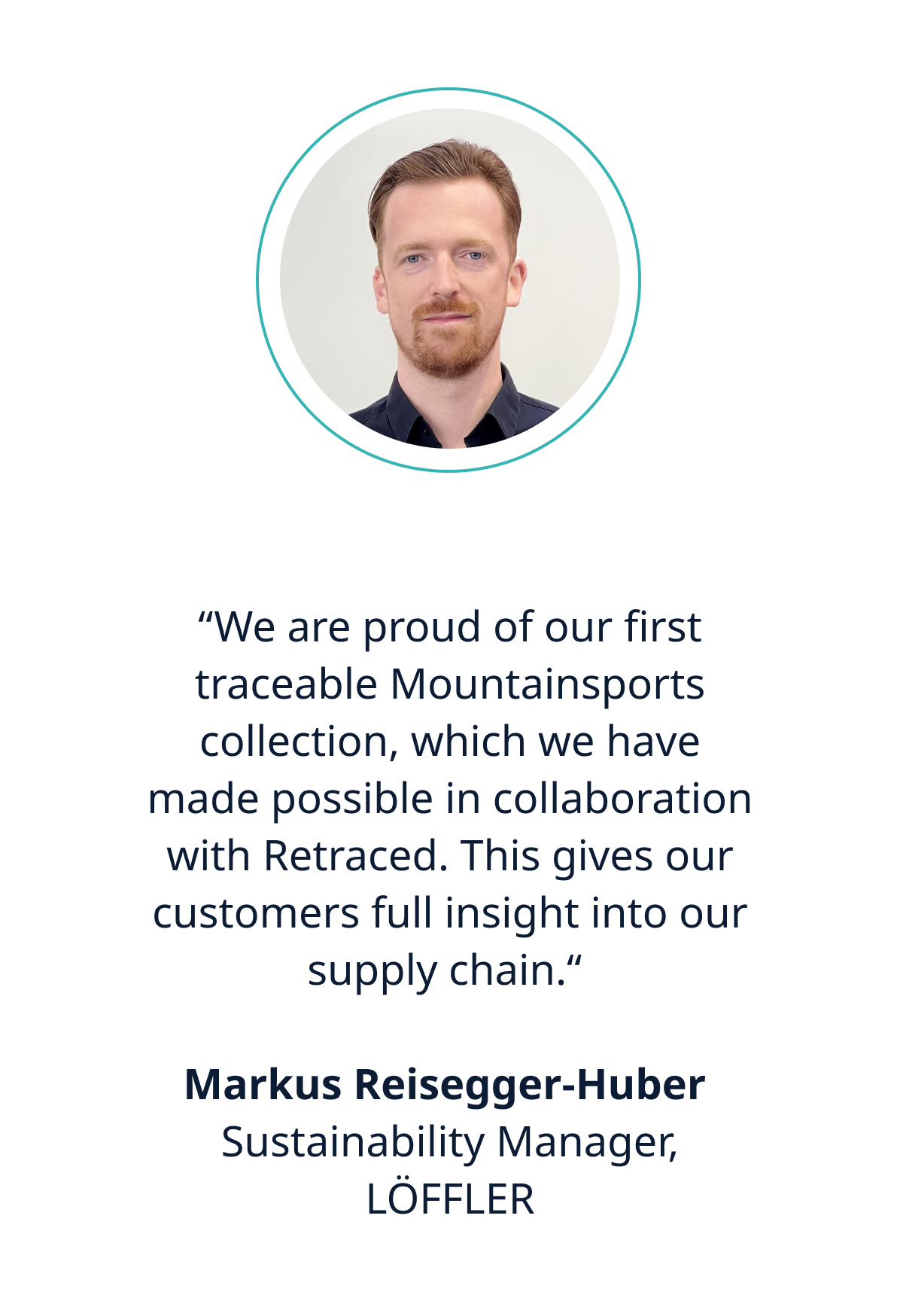Open With Your Camera
Try a DPP in Your Hand
Scan to open an interactive DPP you can tap through.
Just like a live one.
For Fashion and Textile Brands
From Supply Chain Data to Customer Ready DPPs

Your DPP Playbook
How to Prepare Your Fashion Brand for the DPP
Understand what data to collect, how to structure it, and how to meet EU DPP requirements efficiently across your supply chain:
- DPP Essentials – Understand what the Digital Product Passport is and why it matters.
- Regulatory Timeline – Key dates and requirements on the road to full implementation
- Compliance Checklist – Steps brands must take to prepare for DPP implementation.
- How to Get Started – Practical guidance on data collection and integration.
What's Ahead
Key Milestones on the DPP Journey

2025
Delegated Act Adoption (expected)
The EU is set to publish the delegated act for textiles, defining the first Digital Product Passport data requirements.

2026
Technical Standards Framework
Rules for service providers, interoperability, and product identifiers move forward, creating the foundation for scalable DPP use.

2027
First Compliance Window
Following the transition, initial obligations for textiles start to apply. Brands must be ready with core datasets and traceability.

2028-2030
Expansion & Deeper Data
Gradual extension to more textile categories and stricter data requirements, moving beyond compliance to lifecycle integration

Case Study
This is How Retraced Supports Löffler
Löffler’s Mountainsports Summer Collection 2024 is fully traceable:
- Customers get full transparency by scanning a QR code on each product for real-time supply chain details.
- The QR code also leads to an interactive map displaying the production journey and each manufacturing step.
- Customers can also access sustainability certifications and standards for each product.
Apart from that two-thirds of the collection is made from renewable or recycled materials. Löffler produces in Austria and Europe, maintaining close supplier relationships based on their code of conduct.
Insights in 20 Minutes
Getting Started with the Digital Product Passport
Join a 20-minute webinar with Philipp Mayer (CPO & Co-Founder, Retraced) and Vanessa Meermann (Customer Success Manager) on DPP and its impact on fashion. They cover the key essentials every brand should know now.
Start Now
Begin Your DPP Journey With Retraced
Share your details and our DPP specialists will reach out to help you get started.
More Resources For You

Compliance Regulation in Fashion: An ESG Manager’s Guide
In early 2025, the European Union introduced sweeping regulations targeting f...
Read more
How Can You Prepare Your Fashion Brand for the Digital Product Passport (DPP)?
Last updated: November 17, 2025 The EU is moving closer to making Digital Pro...
Read more
Retraced and r-pac Join Forces to Transform Traceability for Fashion Brands and Consumers
Press release | New York, New York, January 13, 2025 Retraced, the leadin...
Read moreNeed help?
Frequently Asked Questions
Retraced was built for the fashion and textile industry. This means the platform already supports the specific datasets brands must provide, such as multi-tier supplier traceability, certifications like GOTS or Fair Wear, and durability or recyclability metrics. Retraced not only helps you manage this data but also transforms it into consumer-facing Digital Product Passports that are compliant, transparent, and easy to use.
Retraced provides a 360° platform to collect, structure, and validate all the data you need for the DPP — from fiber composition and supplier certificates to social and environmental due diligence information. By connecting directly with your suppliers, you build a single source of truth that makes compliance smoother and reduces the risk of missing data.
You can start step by step: audit existing data in PLM or ERP, map your supply chain to find gaps, collaborate with suppliers directly in the Retraced platform, and launch pilot projects for selected collections. This structured approach helps you prepare gradually while ensuring you are fully ready before EU deadlines.
The platform enables real-time communication and data sharing with suppliers. Instead of endless email exchanges and fragmented spreadsheets, all information is collected and validated in one place. This ensures transparency, builds stronger partnerships, and provides a reliable foundation for DPP compliance.
Beyond compliance, Retraced helps brands turn regulatory requirements into a competitive advantage. By creating reliable Digital Product Passports, brands can strengthen consumer trust, showcase their sustainability efforts, and build supply chain resilience, all while streamlining internal processes and preparing for future regulations.
